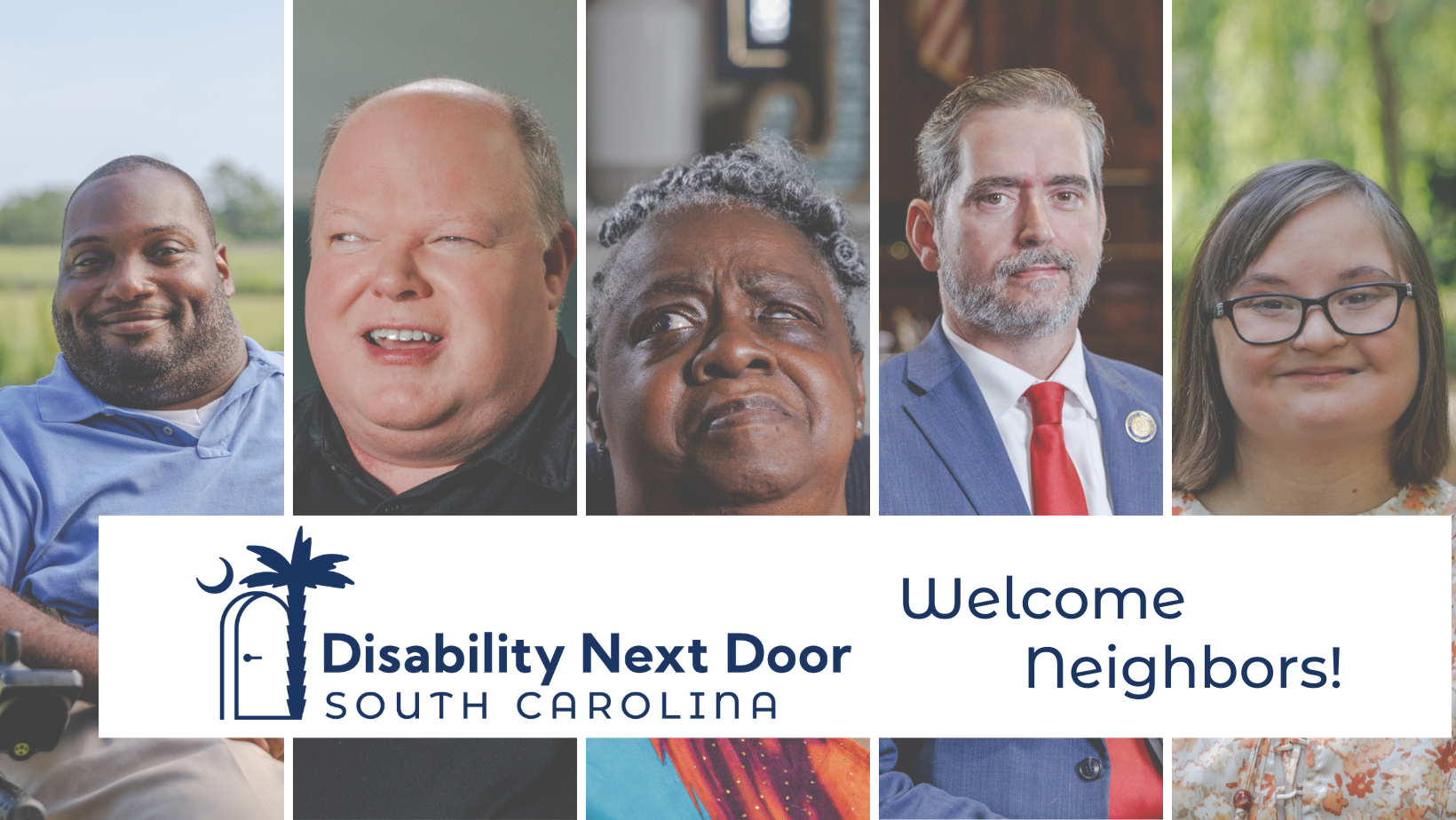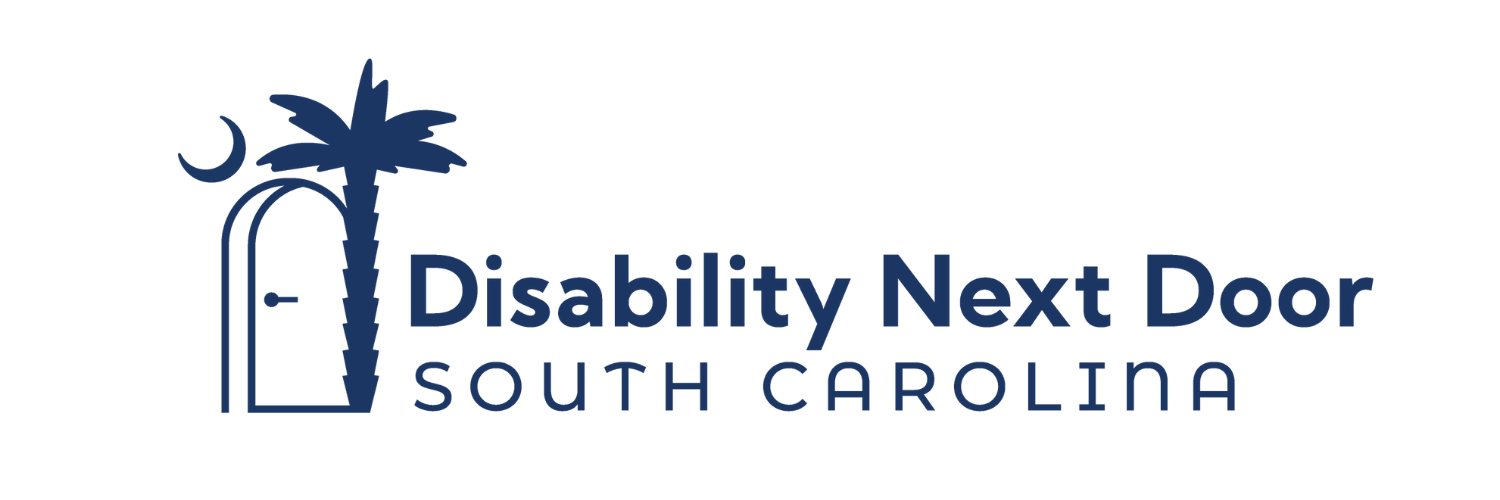Announcing Disability Next Door SC
February 12, 2024A campaign challenging stereotypes about people with disabilities so we are accepted and included in communities throughout South Carolina.
The South Carolina Statewide Independent Living Council, in partnership with the three Centers for Independent Living in South Carolina, Able South Carolina, AccessAbility, and Walton Options, is proud to announce the launch of their groundbreaking initiative, Disability Next Door SC.
Positioned as a powerful rebuttal to stereotypes about people with disabilities, Disability Next Door SC aims to challenge misconceptions and foster acceptance and inclusion within communities across South Carolina. People with disabilities developed the campaign with the goal of making the general population of South Carolina more aware of the real lives of the 1 in 3 people living in the state with a disability.

Disability Next Door SC Position Statement:
We are South Carolinians with disabilities. Disability does not mean a stereotype. We are valuable to our community. We are your neighbors, leaders, mentors, teachers, and business partners. We are change-makers! We are Disability Next Door.
Disability Next Door SC Mission Statement:
Challenging stereotypes about people with disabilities so we are accepted and included in communities throughout South Carolina.
With one in three South Carolinians having a disability, Disability Next Door SC seeks to dispel the myth that people with disabilities are not valuable and active members of the community. People with disabilities hold leadership positions, volunteer their time, and contribute to causes they care about. Disability is not a negative label; it is a part of who we are, and we do not want to be ignored. The initiative proudly declares, “We are your neighbors, and we want you to know that we are people above all else.”
Engage with Disability Next Door SC:
Learn more about Disability Next Door SC on their website: www.disabilitynextdoor.org.
Connect with the community and join the conversation on the campaign’s social media channels: Facebook, Instagram, and X (previously known as Twitter).
Explore the website and social media platforms for interactive content, photos, and stories of real people with disabilities in South Carolina. Engage weekly to discover new insights about disability directly from disabled individuals.
Special Features:
The campaign will feature videos highlighting five disabled individuals from various regions of the state, representing different disabilities, races, and genders. Our website and social media channels will showcase these videos and accompanying photos.
“We believe that showcasing the diversity within our community will help break down stereotypes and create a more inclusive South Carolina,” said Rebecca Thompson, Chair of the South Carolina Statewide Independent Living Council.
Disability Next Door SC encourages all residents of South Carolina to participate actively, fostering a deeper understanding of disability and promoting a more inclusive society.
ABOUT DISABILITY NEXT DOOR SC
We are South Carolinians with disabilities. Disability does not mean a stereotype. We are valuable to our community. We are your neighbors, leaders, mentors, teachers, and business partners. We are change-makers! We are Disability Next Door. Disability Next Door SC is a campaign challenging stereotypes about people with disabilities so we are accepted and included in communities throughout South Carolina.
ABOUT SOUTH CAROLINA STATEWIDE INDEPENDENT LIVING COUNCIL
The South Carolina Statewide Independent Living Council (SILC) is a non-profit organization dedicated to promoting Independent Living for people with disabilities throughout the state. SILC members are appointed by the Governor of South Carolina. Federal regulations requires at least 51% of SILC members be people with significant disabilities. The South Carolina Statewide Independent Living Council (SILC) promotes the independent living philosophy of consumer choice, peer support, self-help, self-determination, equal access, and individual and systems advocacy.




















